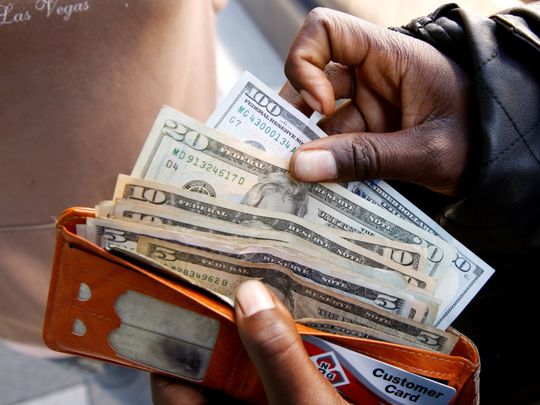
Money is one of the most quoted items. People, over the ages, have expressed differing opinions about it. Money is the root of all evil. Money goes to those who already have it. Money makes the world go around. Money doesn’t grow on trees, and if it did everyone’s favourite season would be fall.
Or, the one about the boy asking his dad how much it cost to get married and the father replying, “I don’t really know. I’m still paying.” Or, money talks, but mostly all it says is goodbye. It’s this last one that got this column started, really.
In my student days when I was trying hard to be everything but a diligent student, a close friend, whose dad like mine, was also a railway man, was exhibiting signs of precocious talent in engineering. There were no two doubts as to where his career path was pointing. But although they tried hard, it was impossible to knock down the door that’s generally known as “University Admissions”.
This door, like the one in the fable — the one that responded to “Open Sesame” — was similarly password protected. The password being, “Show me the money”. A nearly impossible demand, if one happened to be a railway man.
I recall overhearing our two dads in conversation about their sons, mine saying something like, “He’s very confused. He doesn’t really know whether he wants to be a cricketer or a concert pianist.” And the other dad going, “Carlton’s a born engineer. But how does he get a degree? The money they ask for admission!” And my dad replying, ruefully, “That’s the world today. Intelligence isn’t enough. You got to have money because money talks.”
The fact that Carlton ended up in accounting, working long hours, semi-satisfied, in a dark, dingy office, is a story that many parents and many sons will identify with. If only one had the money to make things talk. Which leads me all those years later to the present, to an older citizen, Alison, in her late sixties, who tells me that about ten years ago she went to the bank and withdrew five hundred dollars with the intention of sending the money to her daughter living on the West Coast, in Perth.
The daughter’s husband, a young tradesman, had suffered a debilitating work-related accident. Alison said she made only one stop after leaving the bank — to buy a sandwich at the food court, and in doing so, distracted as she was, probably pulled out her handkerchief which happened to be in the same pocket as the currency and, quite certainly, helped tip the money out of her pocket onto the food court floor — all ten crisp fifty dollar bills.
“I definitely remember putting it in the right-hand jacket pocket,” she tells me. She went back to the food court. “I searched everywhere. I asked the lady at the sandwich shop if anyone had handed in lost money.”
This was long before the advent of CC TV. One relied on the honesty of others. “I had no luck. I couldn’t help my daughter. She eventually got divorced. I refused to wear the jacket all those years. Just let it hang in the closet as a reminder of bad luck.”Then, recently, at a charity drive, a friend of Alison’s encouraged her to, “Get rid of clothes you’re never going to wear again.”
It was this friend, going through all the pockets once again who discovered, nestling in one of the inner, secret pockets sewn into the lining, the ten fifty-dollar notes, still as new. “If only money could talk,’ said Alison, ‘it might have changed our lives.”
And that, I guess, yet another perspective on money.
—Kevin Martin is a journalist based in Sydney, Australia.











